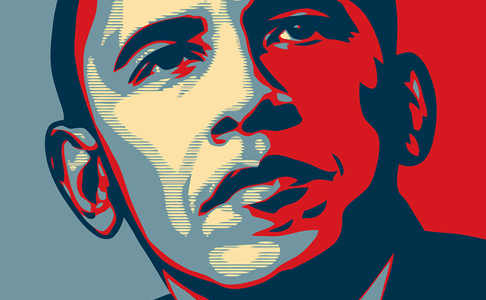Regulating the Fear of Vaccines: An Emotional Response

Earlier this week I wrote a series of pieces (below, at Scientific American,Los Angeles Times) suggesting that society regulate (with lots of open and democratic discussion) the behavior of those who decline vaccination for themselves or their children. The idea provoked a great deal of reaction. Interestingly, the tone of that reaction speaks volumes about precisely the point I was trying to make and that this whole blog is about; that the way we perceive risk is a mix of facts and how those facts feel, powerfully influenced by subconscious psychological instincts. As often as this affective/emotional risk perception system gets things right, sometimes it produces judgments that may feel right, but which can contribute to new risks in and of themselves, what in my book How Risky Is It, Really? I call “The Perception Gap”.
A lot of the response supported the idea (there were hundreds of Facebook “Like”s) that this is just what government does…it is there, in part, to protect the greater community from the behaviors of some that put others at risk, who can’t protect themselves; infants too young to be vaccinated, the old and young and ill who have weakened immune systems, people who have been vaccinated but in whom the immunity has worn off or in whom the vaccine just doesn’t work. (Unvaccinated people cost the health care system billions of dollars to treat preventable illness driving up the cost of health care for all of us.)
A lot of the discussion was passionate ( a bit was nasty; “You Harvard elitists c___sucker”). A few basic themes emerged, illustrating some key instinctive factors that significantly influence the way we perceive risk.
There were a lot of ‘individual rights’ comments;
Notasheep at NPR said “It is everyone’s right to decide what to do with their own body and if ANYONE tries to mandate ANYTHING that someone must take into their own body we have lost all sense of what being human is.
Maedell at the LA Times said: “It’s really none of the government’s or anyone else’s business whether I choose to get my kids vaccinated or not. What kind of terrorists are you people? Mind your own business and get out of our lives!”
This is explained by the study of Cultural Cognition, which finds that some people, known in that research as Individualists, prefer a society that mostly leaves the individual alone (politically we might call them libertarians). So they see the vaccine issue through that lens. That doesn’t mean they’re right or wrong….just that the Individualist instinct is having a powerful effect on how they view the issue.
Plenty of people responded to the Individualists, arguing that society definitely has the right to intercede in the name of the greater common good. In Cultural Cognition research, these folks are called Communitarians, who prefer a ‘we’re all in this together’ society, a worldview that empowers government intervention.
One Communitarian went so far as to suggest this worldview supercedes a parent’s right to make decisions about their kids’ health care if those decisions put the kids at risk (which is in fact law in most places);
BoardChair-ChildrensHealthcareaLegalDuty wrote NPR; “I’m all for religious freedom, but the parents’ freedom of belief, and action based on that belief, is very greatly outweighed by the child’s right to have optimal healthcare.”
Again, you can see how the underlying worldview is shaping these perception about the vaccination facts.
There were a lot of responses which, rather than argue about the evidence regarding vaccine safety or efficacy, said their fear of vaccines comes from mistrust. Trust has powerful influence on how we feel about a lot of things. (Mistrusting the evidence, usually by questioning the integrity of the people/institutions providing the evidence, is a common approach to support our fears when the scientific evidence is heavily weighted in the other direction.
(Penelopewindeldorg) LA Times; “This is all just propaganda from the pharmaceutical companies.”
And there were a lot of comments from people whose minds are clearly made up, for whom the chance is pretty low that more information and open dialogue is going to change their minds. You can hear how powerfully their emotions are shaping their perception of the vaccine risk. Again, this is not to say that that emotion is good or bad, right or wrong, just to note how powerfully our perceptions of risk reflect emotional perspectives more than just ‘rational’ objective consideration of the facts alone.
MaurineMeleck; “I think the autism community is about sick and tired of hearing about the greater good when 1 in every 58 young boys suffers from autism. If you had a child on the spectrum, I doubt you would would hit yourself on the chest and say “Yahoo, I sacrificed my son for the greater good of my next door neighbors and I feel great about it.” This piece is about as ridiculous as saying “Let’s hold this author down and shove prozac in his mouth because he is crazy and it’s not good for his neighbors to be around him acting like that. Vaccines are not properly tested; vaccines can cause injury to some children; vaccine are full of dangerous toxins; vaccines cause autism and other neurological diseases. It’s my right to refuse dangerous vaccines that can cause harm. We are a growing and formidable group fighting for vaccine choice, and parental consent. We will never go away…”
Now, I ask you…what is society supposed to do with that, when such powerful emotions lead to behaviors that put others at risk? That’s why we need to understand and respect the powerful role emotions play in the way we perceive and respond to risk. That’s why we have to come to grips, in a democratic and open way, with the risks of The Perception Gap. That’s why I am pleased to have gotten this conversation going. Please do share this with others. Thanks.





